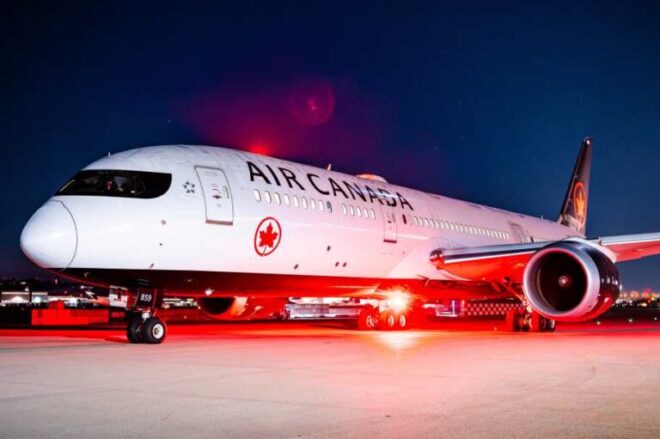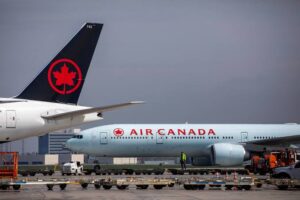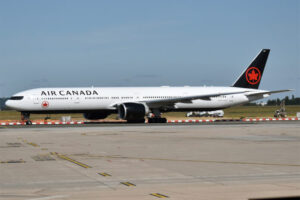
As Air Canada faces the possibility of a significant pilots’ strike, Canadian travelers are left wondering how this might affect their travel plans.

With the potential walk-off looming as early as September 17, after a nearly unanimous strike vote, the implications are vast, potentially grounding up to 1,000 flights a day and disrupting travel for over 120,000 passengers daily.
The Background of the Strike Threat
The current labor dispute arises from ongoing negotiations between Air Canada and its 5,400 pilots, represented by the Air Line Pilots Association (ALPA).
The pilots’ current contract, which dates back to 2014, expired in September 2023. Since June, ALPA has been in discussions with the airline, aided by a federal conciliator.
Despite reaching agreements on several provisions, the union members overwhelmingly voted—98% in favor—to give their union the mandate to strike if necessary.

This strike vote comes amid increasing frustration over what pilots describe as an outdated and inadequate contract.
Many elements of the current agreement stem from the airline’s post-bankruptcy era in 2003, and pilots argue that it no longer reflects the realities of today’s aviation industry.
What Would a Strike Mean for Air Canada?
If the pilots were to strike, Air Canada could be forced to ground approximately 1,000 flights per day.
This disruption would impact both domestic and international travel, leaving passengers scrambling for alternatives.
Air Canada, aware of the potential fallout, has already introduced a rebooking policy for customers scheduled to travel between September 15 and 23.
This policy allows passengers to rebook on any other Air Canada flight with the same origin and destination up to November 30 without additional charges.
For those choosing to cancel and rebook later, change fees are waived, though fare differences may apply.
However, the scale of the disruption would likely make it difficult for passengers to find alternative flights, especially given the high demand and limited availability of seats during the affected period.
Federal Government’s Potential Role
The federal government has previously intervened in similar labor disputes, as seen in the recent railway industry standoff.
While there is no guarantee that the government would step in, it remains a possibility that could force a resolution, as it did with Canadian National and Canadian Pacific Kansas City railways.
However, such interventions are not always welcomed by the unions, and a government-mandated resolution could face pushback.
Financial Implications for Pilots and the Airline
One of the key issues in the negotiations is compensation. Air Canada pilots argue that their pay is significantly lower than that of their counterparts at other major airlines within the Star Alliance network.
For example, recent contracts signed by the four largest U.S. airlines have seen pilots’ earnings nearly double, leaving Air Canada pilots feeling undercompensated.
The disparity is particularly stark for new pilots, who start with some of the lowest salaries among major Canadian airlines.
While a narrow-body captain can earn between $215,000 to $290,000 annually, and a wide-body captain between $315,000 to $350,000, first officers earn significantly less, with starting salaries around $57,375.
Outlook and Traveler Advice
As the September 17 deadline approaches, travelers are advised to stay informed about the ongoing negotiations.
While there is hope that an agreement can be reached, the potential for significant travel disruptions remains high.
Those with upcoming flights should consider taking advantage of Air Canada’s rebooking options and preparing for possible changes to their travel plans.